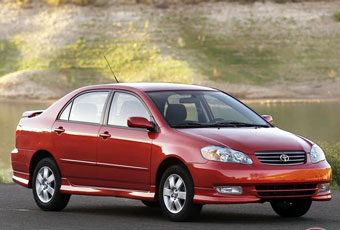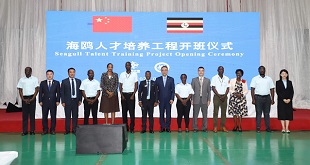
By Independent Team and Agencies
No way. Toyota recall unlikely to stop growth of the 19bn Euro empire
Toyota, the world’s largest automaker, has recalled more than 8 million vehicles around the world for problems with accelerators. Episodes of unintended acceleration in Toyota vehicles have been linked to up to 19 crash deaths in the United States over the past decade.
The 77-year-old Toyota Motor Corporation has been praised for its lean production, quality control and continuous improvement.
The affected cars are the Prius manufactured between 2004 and 2009, Rav 4 (2009-2010), Avalon (2005-2010), Camry (2007-2010), and Sequoia (2009-2010).
Toyota was also forced to stop some sales and production of eight models. The cost may be up to $2bn (£1.25bn) in lost output and sales.
Toyota East Africa Managing Director Hylton Bannon, at a press conference, said cars sold his region were not affected. He said they were manufactured in Japan and South Africa while those in question originate from Europe and the US.
He said vehicles sold in the region are built for African conditions which are totally different to those elsewhere primarily due to road and fuel conditions. Most of the cars sold in the region are of earlier models.
Toyota takes into consideration environmental factors, such as humidity which contributed to the problem of sticky accelerators, when designing components.
The recall expanded to the Middle East, Africa and Latin America. About 180,000 vehicles imported from the US and sold in those regions were affected. Toyota said that condensation – which contributes to the pedal problem – was less likely to build up in hot climates than in the US and Europe.
The recall – up to eight million cars worldwide “” is roughly equivalent to the group’s entire 2009 global sales.
Some Toyotas were recalled from Botswana. Most were supplied by Toyota South Africa Motors (TSAM).
Some Corollas recalled in Europe is also produced in South Africa.
Toyota Motor Corporation is fixing the accelerator pedal problem by installing a precision-cut steel reinforcement bar into the accelerator-pedal assembly that creates a space to reduce the surface tension between the friction device and a component called the pedal arm.
The bar also strengthens the reaction force of the spring that returns the accelerator pedal to its non-pressed position.
Toyota makes Corolla, the best-selling nameplate in automotive history. It is among the most popular models in Uganda. Corolla started in 1966 when Toyota decided to build a small compact car that was of high quality, stylish and more cost-effective than the more prestigious models. Todate, over nine generations of Corolla have been produced. In 1997 Corolla became the best selling car of all time. Up to 35 million Corollas have been sold worldwide.
Toyota’s forte; reducing complexity from their products and using common parts across different products, has proved its Achilles. It means one faulty component affects many different models.
The accelerator problem was blamed on parts produced by an American supplier. But the Prius, Toyota’s top-selling hybrid, was recalled for a braking problem that was manufactured in Japan.
Toyota has switched back to its domestic supplier Denso Corp.
The fault is being seen as the failure of Toyota’s attempt to foreign transplant its “Toyota Way” or kaizen of eliminating waste, producing zero defects and continually improving line performance. Toyota chose CTS as a supplier partly to contribute to the local economy. CTS have solid technology and Toyota approved the design of the defective accelerator. The accelerators supplied by Denso have no problem as they have a different structure.
Under kaizen, factories employ teams whose sole job is to find problems and save time and money and responsibility for production shifts from managers back to the shop floor. Toyota workers are praised for spotting problems, according to Yozo Hasegawa, author of Clean Car Wars: How Honda and Toyota are Winning the Battle of the Eco-Friendly Motors.
Toyota’s days are far from over. It’s not for nothing that its nickname is “Toyota Bank”. Last year, it had over 19 billion Euros stashed away.
 The Independent Uganda: You get the Truth we Pay the Price
The Independent Uganda: You get the Truth we Pay the Price


